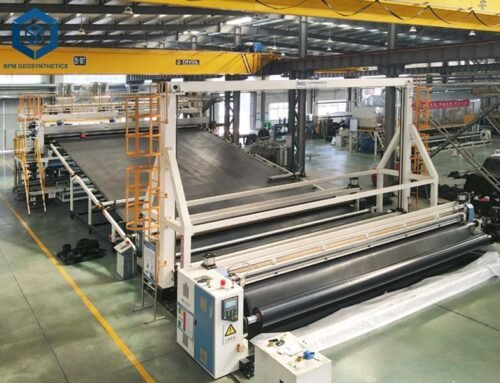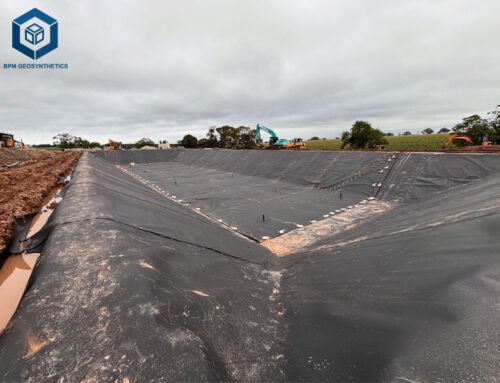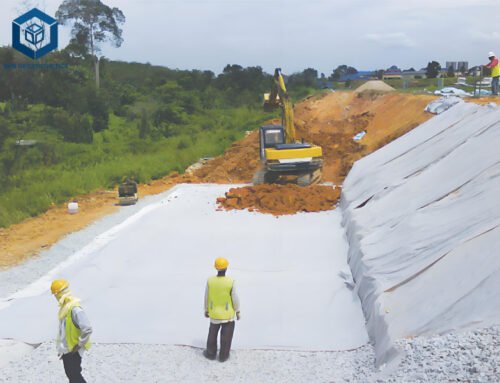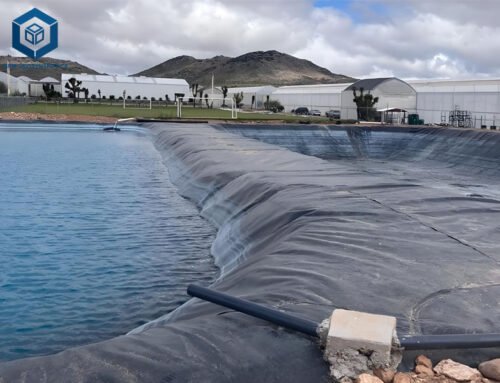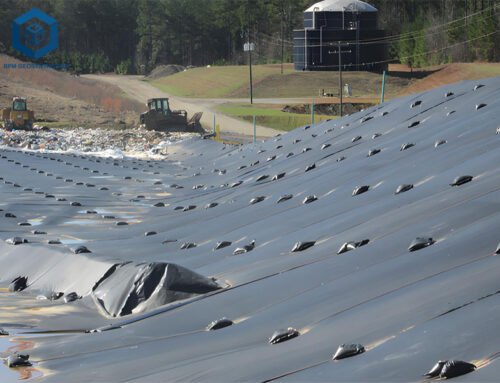Geotextile fabric, a cornerstone of geosynthetic materials, plays a vital role in civil engineering, construction, landscaping, and environmental projects. These permeable textiles, made from synthetic fibers like polypropylene or polyester, are designed to separate, filter, reinforce, protect, or drain soils and aggregates, enhancing project durability and efficiency. In 2024, the global geotextile market was valued at $7.8 billion, with a projected CAGR of 6.8% through 2030, driven by demand in infrastructure, erosion control, and sustainable landscaping (Statista, 2024). With 80% of road construction projects and 65% of environmental projects relying on geotextiles (2024 Geosynthetics Market Report), understanding geotextile fabric costs is critical for contractors, engineers, and project managers.
This blog post provides a comprehensive analysis of geotextile fabric costs per square yard in 2025. Leveraging research from sources like bpmgeosynthetics.com, geofabrics.co, and industry reviews (e.g., Geosynthetic Institute, Alibaba), we explore price ranges, influencing factors, specifications, and applications to guide stakeholders in budgeting and sourcing high-quality geotextile fabrics. All prices are converted from square meters to square yards (1 m² = 1.196 yd²) for consistency.
1. What Is Geotextile Fabric?
Geotextile fabric is a synthetic textile engineered to interact with soil, water, and aggregates in construction and environmental applications. Available in woven and nonwoven forms, geotextiles serve distinct functions based on their structure, strength, and permeability. They are widely used in road construction, drainage systems, erosion control, landscaping, and landfill projects, offering durability and cost efficiency.
Types of Geotextile Fabric
Woven Geotextile Fabric:
- Description: Constructed by weaving synthetic fibers into a tight, grid-like pattern, providing high tensile strength (50–250 kN/m) and durability.
- Applications: Road stabilization, embankment reinforcement, coastal protection.
- Key Specs: Weight (200–800 gsm), permeability (10⁻³–10⁻² cm/s, ASTM D4491), tensile strength (50–250 kN/m, ASTM D4595), UV resistance (70–90% strength retention after 500 hours).
- Price Range: $0.36–$3.00/yd² ($0.30–$2.50/m² × 1.196).
Nonwoven Geotextile Fabric:
- Description: Made by bonding or needle-punching fibers, offering high permeability and flexibility for filtration and drainage.
- Applications: Drainage systems, landscaping, landfill liners.
- Key Specs: Weight (100–600 gsm), permeability (10⁻¹–10⁻² cm/s), elongation (50–100%, ASTM D4632), thickness (0.5–5 mm).
- Price Range: $0.24–$2.15/yd² ($0.20–$1.80/m² × 1.196).
Key Benefits of Geotextile Fabric
- Separation: Prevents soil mixing in 90% of road construction projects, enhancing stability (Geosynthetic Institute, 2024).
- Filtration: Allows 95% water flow while retaining soil particles, critical for drainage systems.
- Reinforcement: Increases soil strength by 20–30% in high-load applications like embankments.
- Erosion Control: Reduces soil loss by 85–90% in coastal and riverbank projects.
- Durability: Withstands 20–50 years of environmental exposure with proper installation.
- Cost Efficiency: Reduces maintenance costs by 15–25% in infrastructure and landscaping projects.
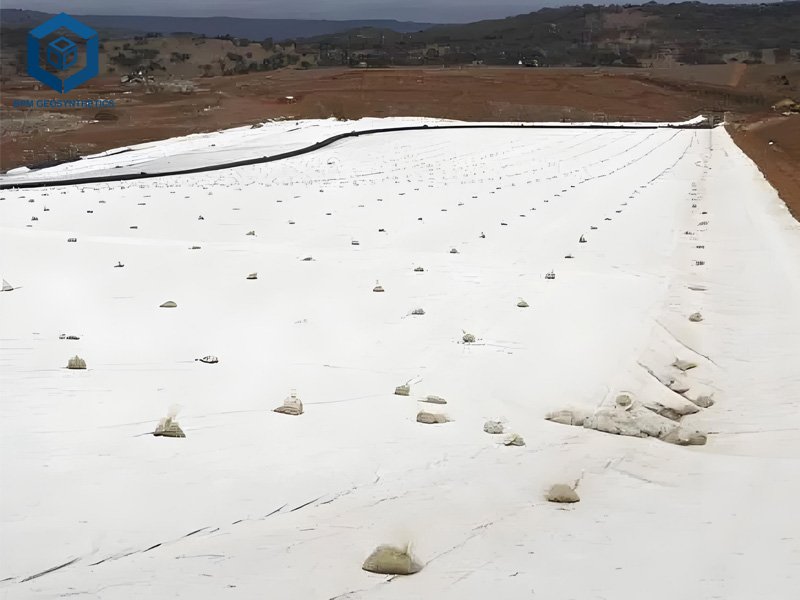
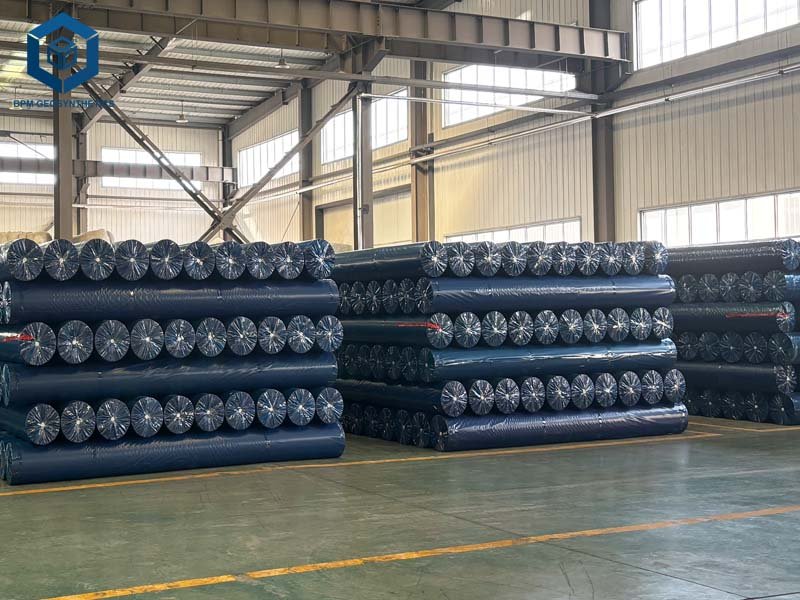
2. Factors Influencing Geotextile Fabric Cost Per Square Yard
Geotextile fabric costs per square yard vary based on material, type, specifications, and project requirements. Below, we analyze the key factors driving pricing, supported by industry data.
2.1 Geotextile Fabric Cost Per Square Yard – Material Composition
- Polypropylene: Dominates 65% of the geotextile market due to its chemical resistance and affordability. Costs $0.24–$2.15/yd² ($0.20–$1.80/m² × 1.196) (globalsources.com, 2025).
- Polyester: Offers 10–20% higher tensile strength for heavy-duty applications, costing $0.48–$3.00/yd² ($0.40–$2.50/m² × 1.196).
- Polyethylene: Used in specialized applications, costing $0.60–$3.59/yd² ($0.50–$3.00/m² × 1.196).
- Impact: Polypropylene nonwoven fabrics are 20–30% cheaper than polyester woven fabrics, making them ideal for cost-sensitive projects.
2.2 Geotextile Fabric Cost Per Square Yard – Fabric Type (Woven vs. Nonwoven)
- Woven: Higher tensile strength and durability increase costs by 15–25% compared to nonwoven. Average price: $0.36–$3.00/yd².
- Nonwoven: Higher permeability and simpler production reduce costs. Average price: $0.24–$2.15/yd².
- Impact: Nonwoven fabrics are preferred for 70% of drainage and filtration applications due to cost savings (2024 Geosynthetics Market Report).
2.3 Geotextile Fabric Cost Per Square Yard – Weight and Thickness
- Weight (gsm): Ranges from 100–800 gsm. Lightweight fabrics (100–200 gsm) cost $0.24–$1.08/yd², while heavy-duty fabrics (400–800 gsm) cost $1.20–$3.00/yd².
- Thickness: 0.5–5 mm. Thicker fabrics (3–5 mm) for reinforcement cost 20–30% more than thinner fabrics (0.5–2 mm) for filtration.
- Impact: Heavier fabrics increase material costs by 25% but enhance durability by 30% for high-load applications.
2.4 Geotextile Fabric Cost Per Square Yard – Technical Specifications
- Tensile Strength: Fabrics with 100–250 kN/m for road construction cost 15–20% more than low-strength fabrics (20–50 kN/m) for landscaping.
- Permeability: High-permeability fabrics (10⁻¹ cm/s) for drainage are 10% cheaper than low-permeability fabrics for erosion control.
- UV Resistance: UV-treated fabrics retain 70–90% strength after 500 hours, adding $0.12–$0.36/yd².
- Impact: Customized specs increase costs by 10–20% but ensure 95% compliance with project requirements.
2.5 Geotextile Fabric Cost Per Square Yard – Order Volume and MOQ
- Bulk Orders: Orders above 10,000 yd² (8,361 m²) reduce costs by 10–20% due to economies of scale.
- Minimum Order Quantity (MOQ): Suppliers like BPM Geosynthetics offer MOQs of 1,000–5,000 yd², with smaller orders increasing costs by 5–10%.
- Impact: Large-scale projects save 15–20% on bulk purchases (Alibaba, 2025).
2.6 Geotextile Fabric Cost Per Square Yard – Geographic Location and Logistics
- Manufacturing Region: Suppliers in China (e.g., BPM Geosynthetics) offer 20–30% lower costs than North American or European suppliers.
- Shipping Costs: International freight adds $0.06–$0.30/yd², with domestic shipping costing 5–10% less.
- Impact: Sourcing from Asia reduces material costs but may increase lead times by 10–20 days.
2.7 Geotextile Fabric Cost Per Square Yard – Certifications and Quality Standards
- Certifications: ISO 9001, ASTM D4491, and OEKO-TEX compliance add $0.06–$0.24/yd² due to rigorous testing.
- Impact: Certified fabrics ensure 98% reliability but increase costs by 5–10%.
3. Geotextile Fabric Cost Per Square Yard Breakdown (2025)
Below is a detailed cost breakdown for geotextile fabrics per square yard, based on type, weight, and application, compiled from industry sources (bpmgeosynthetics.com, geofabrics.co, 2025).
Geotextile Fabric Cost Per Square Yard – Nonwoven Geotextile Fabric
- Lightweight (100–200 gsm):
- Applications: Landscaping, drainage, weed control.
- Price: $0.24–$1.08/yd² ($0.20–$0.90/m² × 1.196).
- Example: 150 gsm polypropylene for garden drainage costs $0.48/yd².
- Medium-Weight (200–400 gsm):
- Applications: Road subbase, filtration, erosion control.
- Price: $0.60–$1.44/yd² ($0.50–$1.20/m² × 1.196).
- Example: 300 gsm polyester for road stabilization costs $1.14/yd².
- Heavy-Weight (400–600 gsm):
- Applications: Landfill liners, heavy-duty filtration.
- Price: $1.20–$2.15/yd² ($1.00–$1.80/m² × 1.196).
- Example: 500 gsm polypropylene for landfill drainage costs $1.68/yd².
Geotextile Fabric Cost Per Square Yard – Woven Geotextile Fabric
- Lightweight (200–400 gsm):
- Applications: Soil separation, light reinforcement.
- Price: $0.36–$1.44/yd² ($0.30–$1.20/m² × 1.196).
- Example: 300 gsm polypropylene for embankment support costs $0.96/yd².
- Medium-Weight (400–600 gsm):
- Applications: Road construction, erosion control.
- Price: $0.96–$2.15/yd² ($0.80–$1.80/m² × 1.196).
- Example: 500 gsm polyester for coastal protection costs $1.56/yd².
- Heavy-Weight (600–800 gsm):
- Applications: Heavy-duty reinforcement, railway stabilization.
- Price: $1.80–$3.00/yd² ($1.50–$2.50/m² × 1.196).
- Example: 700 gsm polyester for railway projects costs $2.40/yd².
Additional Costs
- Installation: $0.12–$0.72/yd², depending on labor rates and site complexity.
- Shipping: $0.06–$0.30/yd² for international freight; domestic shipping is 5–10% cheaper.
- Customization: UV treatment, custom widths (1–6 m), or branding adds $0.06–$0.36/yd².
- Total Cost Range: $0.30–$3.60/yd², including material, shipping, and installation.
4. Applications of Geotextile Fabric and Cost Implications
Geotextile fabrics are used in a wide range of applications, each with specific requirements that influence costs. Below, we explore key applications and their associated cost ranges per square yard.
4.1 Road Construction
- Purpose: Separates subbase from subgrade, preventing mixing and enhancing road stability by 25–30%.
- Fabric Type: Woven (400–800 gsm) for high tensile strength.
- Cost: $0.96–$3.00/yd².
- Example: A 12,000 yd² highway project using 500 gsm woven polyester costs $14,400–$25,200, with bulk discounts saving 10–15%.
4.2 Drainage Systems
- Purpose: Filters soil particles while allowing 95% water flow efficiency in French drains, retaining walls, and stormwater systems.
- Fabric Type: Nonwoven (100–400 gsm) for high permeability.
- Cost: $0.24–$1.44/yd².
- Example: A 4,000 yd² drainage project using 200 gsm nonwoven polypropylene costs $1,600–$4,800.
4.3 Erosion Control
- Purpose: Stabilizes slopes and prevents soil loss by 85–90% in coastal, riverbank, and hillside projects.
- Fabric Type: Woven or nonwoven (200–600 gsm) with UV resistance.
- Cost: $0.60–$2.15/yd².
- Example: A 2,500 yd² riverbank project using 400 gsm woven polyester costs $2,000–$4,500.
4.4 Landscaping
- Purpose: Prevents weed growth and improves drainage in gardens, pathways, and turf installations.
- Fabric Type: Nonwoven (100–200 gsm) for cost efficiency.
- Cost: $0.24–$1.08/yd².
- Example: A 1,500 yd² garden project using 150 gsm nonwoven polypropylene costs $720–$1,620.
4.5 Landfill and Environmental Projects
- Purpose: Filters leachate and protects liners in landfill systems, ensuring 98% environmental compliance.
- Fabric Type: Nonwoven (400–600 gsm) for durability and chemical resistance.
- Cost: $1.20–$2.15/yd².
- Example: A 20,000 yd² landfill project using 500 gsm nonwoven polyester costs $33,600–$43,200.
5. Comparison Table of Geotextile Fabric Costs by Application
| Application | Fabric Type | Weight (gsm) | Tensile Strength (kN/m) | Permeability (cm/s) | Cost Range ($/yd²) | Key Features |
| Road Construction | Woven | 400–800 | 50–250 | 10⁻³–10⁻² | $0.96–$3.00 | High strength, durability |
| Drainage Systems | Nonwoven | 100–400 | 10–50 | 10⁻¹–10⁻² | $0.24–$1.44 | High permeability, filtration |
| Erosion Control | Woven/Nonwoven | 200–600 | 20–100 | 10⁻²–10⁻¹ | $0.60–$2.15 | UV resistance, stability |
| Landscaping | Nonwoven | 100–200 | 10–30 | 10⁻¹ | $0.24–$1.08 | Cost-effective, weed control |
| Landfill Projects | Nonwoven | 400–600 | 20–80 | 10⁻² | $1.20–$2.15 | Chemical resistance, durability |
6. How to Budget for Geotextile Fabric Projects
Budgeting for geotextile fabric projects requires a strategic approach to balance cost and performance. Below are key steps to optimize budgets:
6.1 Define Project Requirements
- Evaluate Needs: Identify the application (e.g., reinforcement, filtration) and required specs (tensile strength, permeability). For example, road projects need woven fabrics (50–250 kN/m), while drainage requires nonwoven (10⁻¹ cm/s).
- Impact: Proper specification reduces costs by 10–15% by avoiding over-engineering.
6.2 Estimate Quantities
- Measure Area: Calculate the total square yards needed. A 20,000 yd² road project may require $19,200–$60,000 in fabric costs.
- Account for Overlaps: Add 10–15% for overlaps and waste, increasing costs by $0.06–$0.18/yd².
6.3 Source Reputable Suppliers
- Compare Quotes: Request quotes from suppliers like BPM Geosynthetics, Geofabrics, and TenCate. Bulk orders above 10,000 yd² save 10–20%.
- Verify Certifications: Ensure ISO 9001, ASTM D4491, or OEKO-TEX compliance for 98% reliability.
6.4 Include Installation and Logistics
- Installation Costs: Budget $0.12–$0.72/yd² for labor, depending on site complexity.
- Shipping Costs: Allocate $0.06–$0.30/yd² for international freight; domestic shipping saves 5–10%.
- Impact: Logistics can increase total costs by 10–15%, especially for remote sites.
6.5 Focus on Long-Term Value
- Durability: High-quality geotextiles reduce maintenance costs by 15–25% over 20–50 years.
- Sustainability: Eco-friendly fabrics align with 65% of project sustainability goals, enhancing ROI.
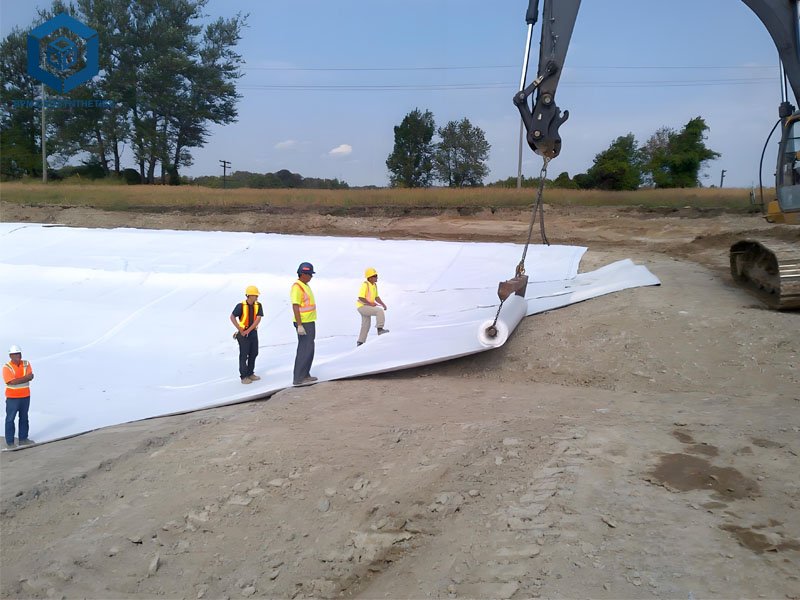
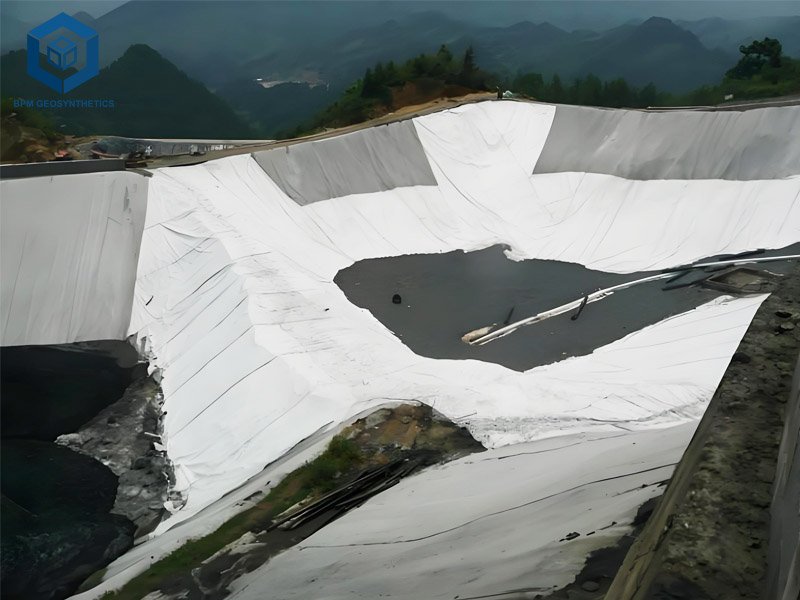
7. Top Geotextile Fabric Suppliers in 2025
Based on research from bpmgeosynthetics.com, geofabrics.co, and Alibaba, here are leading geotextile fabric suppliers offering competitive pricing and quality:
7.1 BPM Geosynthetics
- Overview: China-based, producing 5 million yd² annually, exporting to 80+ countries.
- Products: Nonwoven (100–600 gsm, $0.24–$2.15/yd²), woven (200–800 gsm, $0.36–$3.00/yd²).
- Strengths: ISO 9001-certified, 30-day lead times, MOQs of 1,000 yd².
- Why Choose?: Cost-effective, high-quality fabrics with 98% on-time delivery.
7.2 Geofabrics Australasia
- Overview: Australia-based, producing 3 million yd² annually, exporting to 30+ countries.
- Products: Nonwoven (150–500 gsm, $0.36–$2.15/yd²), woven (300–700 gsm, $0.96–$3.00/yd²).
- Strengths: ASTM D4491-compliant, strong focus on erosion control.
- Why Choose?: Ideal for Oceania-based projects with fast regional shipping.
8. Conclusion
Geotextile fabric costs in 2025 range from $0.24–$3.60/yd², driven by material type, fabric weight, project specifications, and logistics. Nonwoven fabrics ($0.24–$2.15/yd²) are ideal for drainage and landscaping, while woven fabrics ($0.36–$3.00/yd²) suit reinforcement and erosion control. By understanding these factors and sourcing from reputable suppliers like BPM Geosynthetics, contractors and project managers can achieve cost efficiency while ensuring 95–98% project compliance and durability. For tailored solutions, contact suppliers like BPM Geosynthetics to explore high-quality, cost-effective geotextile fabrics for your projects.

